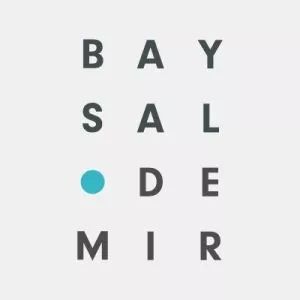One year after the enactment of the previous package, the 8th Judicial Package was published in the Official Gazette on March 12, 2024.1
The 7th Judicial Reform Package allocated a special area for civil law proceedings, among other areas. The 8th Judicial Reform Package, officially known as "Law No. 7499 on Amendments to the Code of Criminal Procedure and Certain Laws and Decree Law No. 659", as its name suggests, prioritized criminal law proceedings. However, it has also introduced important changes in other areas such as enforcement law, civil law and the protection of personal data.
These amendments also serve the purpose of fulfilling the annulment decisions of the Constitutional Court respecting fundamental human rights such as personal freedom, right to privacy and right to property.
Another significant amendment relates to complaints regarding the excessively long court trials, which again constitute a large part of the Constitutional Court's workload. The amendment does not aim to ensure that the judgements are held within a reasonable time, but rather to provide a symbolic compensation in a more practical way.
I. HARMONIZATION OF COURT APPLICATION PERIODS
a. Amendments to the Enforcement and Insolvency Law ("EIL")
The application periods for legal remedies stipulated in the Enforcement and Bankruptcy Law ("EBL") have been rearranged and harmonized with the application periods stipulated in the Code of Civil Procedure ("CCP"). Accordingly, appeal periods which were regulated as ten days in various provisions of the EBL, have been increased to two weeks.
The point the application periods commence has also been reconsidered and is now determined as the date of notification of the reasoned judgement, not the date of announcement of the summary judgment.
These amendments under the EBL will enter into force on June 1, 2024.
b. Amendments to the Code of Criminal Procedure
The period for appeal to the regional appellate court, which was seven days from the announcement of the judgment, has been changed to two weeks from the date of notification of the reasoned judgment.
Similarly, Article 291(1) of the Code of Criminal Procedure, the time limit for appeals to the Court of Cassation has been regulated as two weeks from the date of notification of the reasoned judgment.
These amendments to the Code of Criminal Procedure will enter into force on June 1, 2024.
II. AMENDMENTS UNDER THE TURKISH CIVIL CODE
a. Restriction Decisions are softened
Art. 407 of the Civil Code regulates the restriction of adults sentenced to imprisonment for one year or more. This restriction prevented them from incurring debts through their own actions and from performing civil transactions such as marriage, unless they had the consent of their legal representative.
The article has been revised in line with the Constitutional Court's decision.
The Constitutional Court has annulled the relevant article with effect from 23.03.2024.2 In the justification of the annulment decision, it was stated that the mere imprisonment sentence as a reason for restriction was contrary to the "right to privacy" and "right to own property".
The revised regulation now stipulates that adults serving a finalized imprisonment sentence, will be restricted upon their request. However, if the final imprisonment sentence is 5 years or longer, it is still possible to restrict the person even if he/she does not request it, if deemed necessary for the protection of his/her personality or assets.
Art. 471 of the TCC, which regulates the guardianship over persons restricted due to imprisonment, has also been amended. In this context, by considering the superior interest of the person concerned, it is now possible to remove the restriction even before the end of the long-term imprisonment.
This article entered into force on the date of publication in the Official Gazette.
b. New Objection Procedure for Persons Placed in a Medical Institution
The procedure and conditions for the restriction of freedom for reasons such as mental illness, alcohol/drug abuse and contagious diseases, are found in TCC Art. 432 et seq. In this context, it was possible to place the person in a medical institution for a period not exceeding 20 days in order to obtain an official medical report. However, the Constitutional Court had annulled this regulation on the grounds that it imposed a disproportionate restriction on the "right to freedom and security".3
As part of the 8th Judicial Reform Package, the article has been amended to provide the concerned individuals with a remedy to object to the decision to place him/her to a health institution. Accordingly, the placement decision will be immediately notified to the relevant person and his/her relatives, and the relevant person and his/her relatives may object against this decision to the supervisory authority within ten days from the notification.
The amendments to the TCC entered into force as of 12.03.2024, the date of publication in the Official Gazette.
III. EXTENDED POWERS OF COMPENSATION COMMISSION
a. Compensation Claims Arising From Excessive Length of Trials
The fact that judgements in Turkey are often not concluded within a reasonable time, constitutes an important judicial problem. In order to reduce the number of applications to the European Court of Human Rights ("ECHR") in this regard, it was made compulsory for persons claiming violation of their rights to first apply to the Constitutional Court as of 23 September 2012. Predictably, the workload of the Constitutional Court was no longer sustainable as of that date and a new solution was required.
As a first step, on 05.04.2023, the duty to examine pending applications before the Constitutional Court was transferred to the Human Rights Compensation Commission of the Ministry of Justice in order to ensure a faster resolution of these applications.
As a second step, with the adopted 8th Judicial Reform Package, the workload of the Constitutional Court was also cleared of applications filed after 10.03.2023. Applications in this regard will now be referred directly to the Compensation Commission. The law, renamed as the "Law on the Duties and Working Procedures and Principles of the Compensation Commission", expanded the powers of the existing compensation commission and made it a primary and easily accessible authority for claims of violation of rights.
b. Compensation Claims Arising From Protective Measures
With the amendments, the compensation of damages arising from the unlawful application of the protective measures stipulated under Art. 141 of the Code of Criminal Procedure No. 5271, has been included among the new duties of the Compensation Commission.
In this context, violations of rights arising from judicial control measures such as arrest, apprehension and ban on leaving the country will be subject to the review of the Compensation Commission.
The regulations on this issue entered into force as of 12.03.2024, the date of publication in the Official Gazette.
IV. AMENDMENTS UNDER THE LAW ON PROTECTION OF PERSONAL DATA
a. Amendment to the Conditions for Processing Special Categories of Personal Data
Personal Data Protection Law ("PDPL"), in force as of 2016, has been amended with the new judicial package. With this amendment, the conditions for the processing special categories of personal data have been expanded.
According to the old regulation, the processing of special categories of personal data was only possible with the explicit consent of the person or if stipulated by law. If the data in question concerned the individual's health and sexual life, the conditions for processing such data were much more severe.
Pursuant to this regulation, which the legislator states that it has enacted by taking into account the European Union General Data Protection Regulation ("GDPR"),
- there is not any more a distinction for health and sexual life of the person;
- other than the cases explicitly stipulated in the Law, superior individual or public interests, such as the protection of the physical integrity of individuals or the planning of health services, may also constitute grounds for the processing of special categories of personal data.
It is seen that these amendments, which are justified by "the need for health data in the fields of insurance, employment legislation, occupational health and safety and social services", are subject to intense debates due to the fact that they expand the processing of special categories of personal data in an arguably disproportionate, discretionary and unrestrained manner.
This issue may be further shaped by new regulations until the effective date of 01.06.2024.
b. Amendments to the Procedure for Transferring Personal Data Abroad
The new amendment to Art. 9 of the PDPL aims to make the transfer of personal data abroad compatible with the current commercial practice. At the same time, the relevant amendment adopts the provisions of the GDPR regulating the transfer of data outside the European Union.
With the addition made to Art. 18 titled "Misdemeanors" of the Law, administrative fines are stipulated in case of violation of the relevant obligations, which can be challenged before the administrative courts.
The amendments made within the scope of PDPL will enter into force as of 01.06.2024. However, the first paragraph of Article 9 will continue to be applied until 01.09.2024 as it was before the amendment.4
V. AMENDMENTS TO THE TURKISH CRIMINAL CODE
In order to enhance the deterrence by the penalties and prevent crimes, new amendments were made to the Turkish Criminal Code with the 8th Judicial Reform Package. In this context,
- Taking into account the Constitutional Court decisions5, the "crime committed on behalf of an organization" and the crime of "being a member of an organization" have been separated, and the sanction for committing a crime on behalf of an organization has been aggravated (Turkish Criminal Code Art. 220(6), Art. 314).
- Judicial fines have been increased (Turkish Criminal Code Art. 52).
On the other hand, the 8th Judicial Reform Package, taking into account the decisions of the Constitutional Court, introduced regulations to prevent or at least partially compensate for violations of the right to a fair trial by judicial procedures. In this context,
- As mentioned above, it is now possible for individuals to apply to the Compensation Commission for unfair judicial control practices,
- The "deferral of the announcement of the verdict" procedure, which serves to conditionally remove the legal consequences and effects of the verdict against the defendant (including the possibility of appealing), has been reshaped so as not to prejudice the court against the defendant and not to undermine the presumption of innocence,6
- The prosecution of a fugitive defendant is prevented from yielding any judgment that would indicate existence of an offence,7
- Objections to judgments rendered in proceedings subject to the simplified procedure, which applies to offenses requiring an imprisonment not more than two years are to be heard by a court other than the court that rendered the judgment.8
To read our article "Significant Amendments Under The 7th Package Of The Judicial Reform", please click here.
Footnotes
1. Official Gazette 12.03.2024/32487.
2. Constitutional Court Decision numbered 2022/105 E., 2023/54 K., and dated 22.03.2023.
3. Constitutional Court Decision numbered 2020/30 E., 2023/12 K., and dated 25.01.2023.
4. The text of PDPL Art. 9(1) before its amendment is as follows: "Personal data cannot be transferred abroad without the explicit consent of the data subject."
5. Constitutional Court Decision numbered 2023/131 E., 2023/183 K., and dated 26.10.2023.
6. Constitutional Court Decision numbered 2022/120 E., 2023/107 K., and dated 01.06.2023.
7. Constitutional Court Decision numbered 2022/145 E., 2023/59 K., and dated 22.03.2023.
8. Constitutional Court Decision numbered 2020/79 E., 2023/113 K, and dated 22.06.2023.
The content of this article is intended to provide a general guide to the subject matter. Specialist advice should be sought about your specific circumstances.


